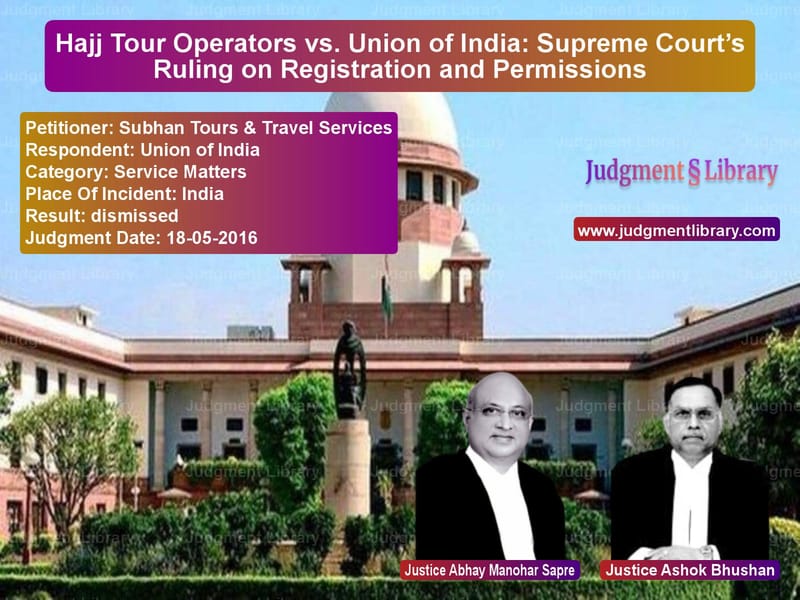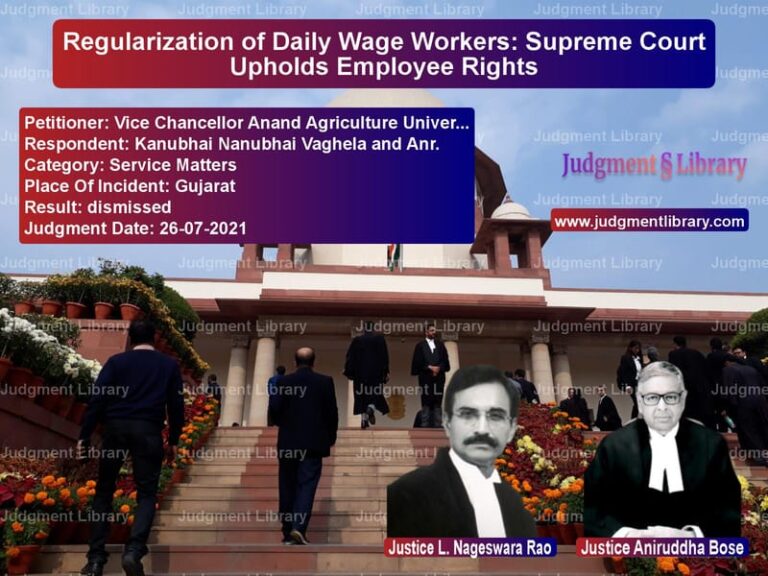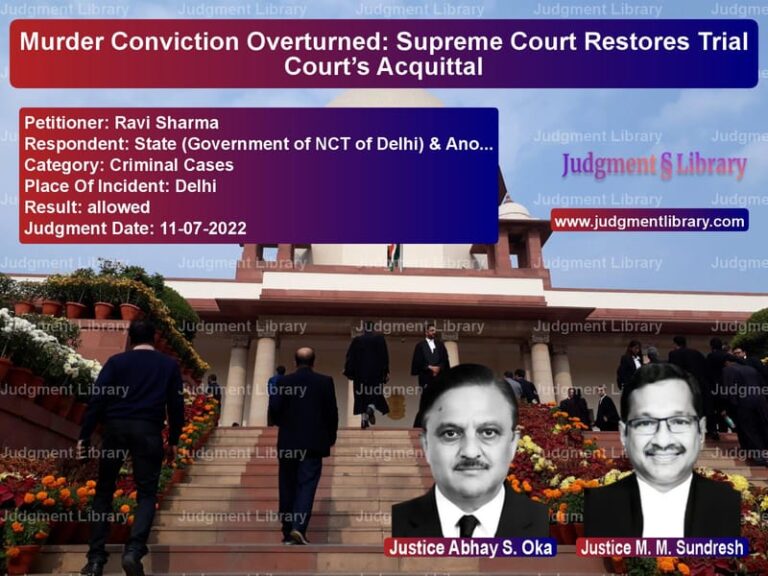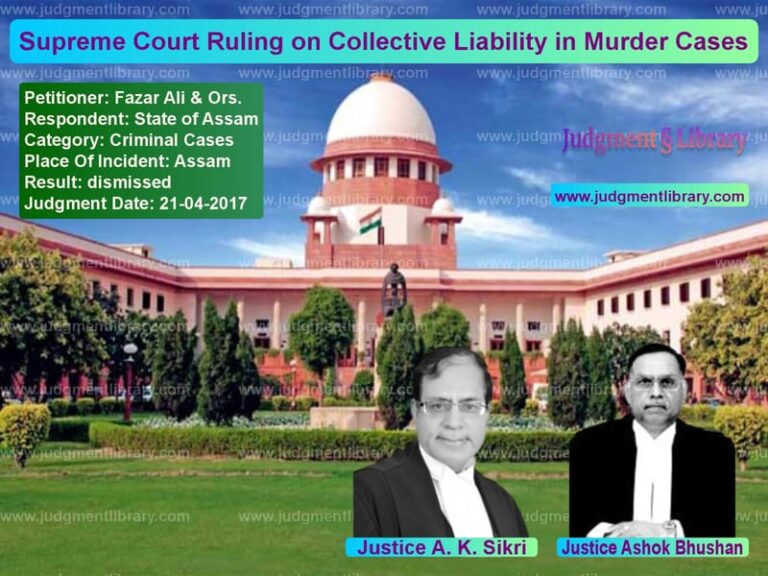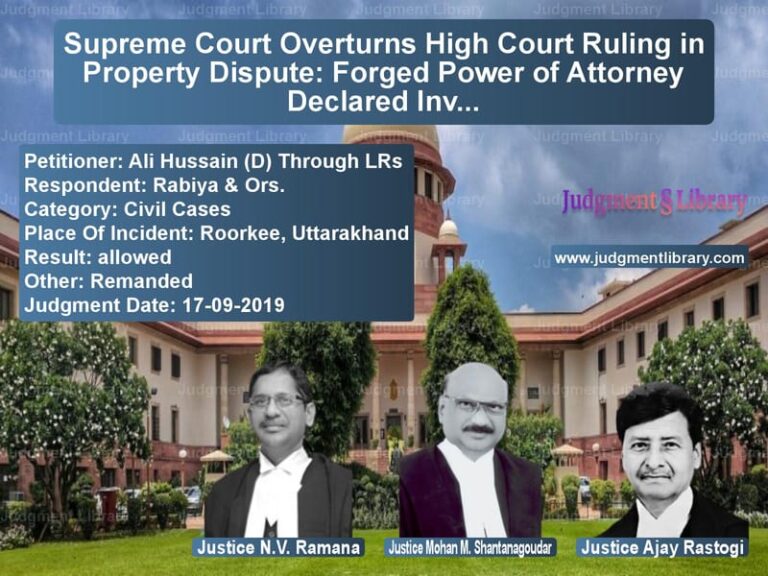Hajj Tour Operators vs. Union of India: Supreme Court’s Ruling on Registration and Permissions
The case of Subhan Tours & Travel Services vs. Union of India and related writ petitions highlight an important legal issue regarding the registration and permission for private tour operators (PTOs) to conduct Hajj pilgrimages. These petitions, filed under Article 32 of the Constitution, sought relief from the Supreme Court, arguing that the process for granting registration certificates under Category II was unfair and lacked transparency.
The Supreme Court, while disposing of the petitions, directed the government to process fresh applications from PTOs in a fair and legally compliant manner. The judgment underscores the principles of procedural fairness and the importance of transparency in administrative decision-making.
Background of the Case
Multiple private tour operators approached the Supreme Court with writ petitions seeking intervention in the registration process for Hajj pilgrimage tours. The petitioners argued that:
- They were experienced tour operators who had conducted Hajj tours in previous years without any issues.
- There was an apprehension that their applications for 2016 might be arbitrarily rejected.
- The authorities had delayed processing their applications, thereby affecting their business and the travel plans of Hajj pilgrims.
The PTOs sought a writ of mandamus from the Supreme Court directing the authorities to accept their applications and issue the necessary registration certificates.
Legal Issues Raised
The case raised several important legal questions:
- What are the rights of private tour operators in obtaining registration for conducting Hajj tours?
- Does the government have the discretion to reject applications without providing reasons?
- What legal protections exist for PTOs against arbitrary administrative decisions?
- How should applications be processed to ensure transparency and fairness?
Arguments by the Petitioners
The petitioners presented the following arguments before the Supreme Court:
- They had fulfilled all the necessary criteria for registration as PTOs and had successfully conducted Hajj tours in the past.
- The authorities had either not processed their applications or were likely to reject them without justification.
- They had a legitimate expectation of being granted registration based on their prior approvals.
- The lack of a clear and transparent policy created uncertainty and unfair treatment.
Response by the Union of India
The government, represented by the Additional Solicitor General, countered the petitioners’ claims by stating:
- No final decision had been taken on any of the applications.
- The process for registration was ongoing, and each application would be reviewed individually.
- PTOs were required to submit fresh applications with complete documentation before the deadline.
- Decisions on each application would be communicated to the applicants within a set timeframe.
Supreme Court’s Observations
The Supreme Court carefully examined the submissions and noted that:
- The apprehensions of the petitioners were premature, as no application had been formally rejected.
- The government had committed to processing applications fairly and in accordance with the law.
- Past judgments had established clear legal principles that must be followed in such matters.
- PTOs had the right to submit fresh applications with all necessary documentation.
Key Legal Precedents
The Supreme Court referred to previous rulings that laid down guidelines for PTO registration:
- Union of India vs. Rafique Shaikh Bhikan (2013) 4 SCC 699: Established the requirement for fairness in PTO registration.
- Union of India vs. All India Haj Umrah Tour Organizers Association (2014): Provided guidelines on how applications should be processed.
- Jeddah Travels vs. Union of India (2014): Reinforced the importance of procedural transparency.
- Union of India vs. Rafique Sheikh Bhikan (2015): Confirmed that discretionary powers must be exercised fairly.
Final Judgment
The Supreme Court ruled:
“Each writ petitioner is granted liberty to submit a fresh application with all necessary documents by May 27, 2016. The concerned authorities shall process and decide each application strictly in accordance with the law and past precedents by June 29, 2016.”
The Court directed that a reasoned order must be issued for each application and communicated to the respective applicant.
Impact of the Judgment
The ruling has significant implications:
- Ensures transparency in the PTO registration process.
- Provides clarity on the legal rights of private tour operators.
- Prevents arbitrary rejection of applications.
- Sets a precedent for future cases involving administrative fairness.
Conclusion
The judgment in Subhan Tours & Travel Services vs. Union of India highlights the importance of procedural fairness in administrative decisions. It ensures that private tour operators seeking registration for Hajj tours are treated equitably and in compliance with legal principles. The ruling reaffirms that government authorities must act transparently and provide justifications for their decisions, thereby safeguarding the rights of PTOs and the interests of Hajj pilgrims.
Don’t miss out on the full details! Download the complete judgment in PDF format below and gain valuable insights instantly!
Download Judgment: Subhan Tours & Trave vs Union of India Supreme Court of India Judgment Dated 18-05-2016-1741860954906.pdf
Direct Downlaod Judgment: Direct downlaod this Judgment
See all petitions in Employment Disputes
See all petitions in Public Sector Employees
See all petitions in Judgment by Abhay Manohar Sapre
See all petitions in Judgment by Ashok Bhushan
See all petitions in dismissed
See all petitions in supreme court of India judgments May 2016
See all petitions in 2016 judgments
See all posts in Service Matters Category
See all allowed petitions in Service Matters Category
See all Dismissed petitions in Service Matters Category
See all partially allowed petitions in Service Matters Category

